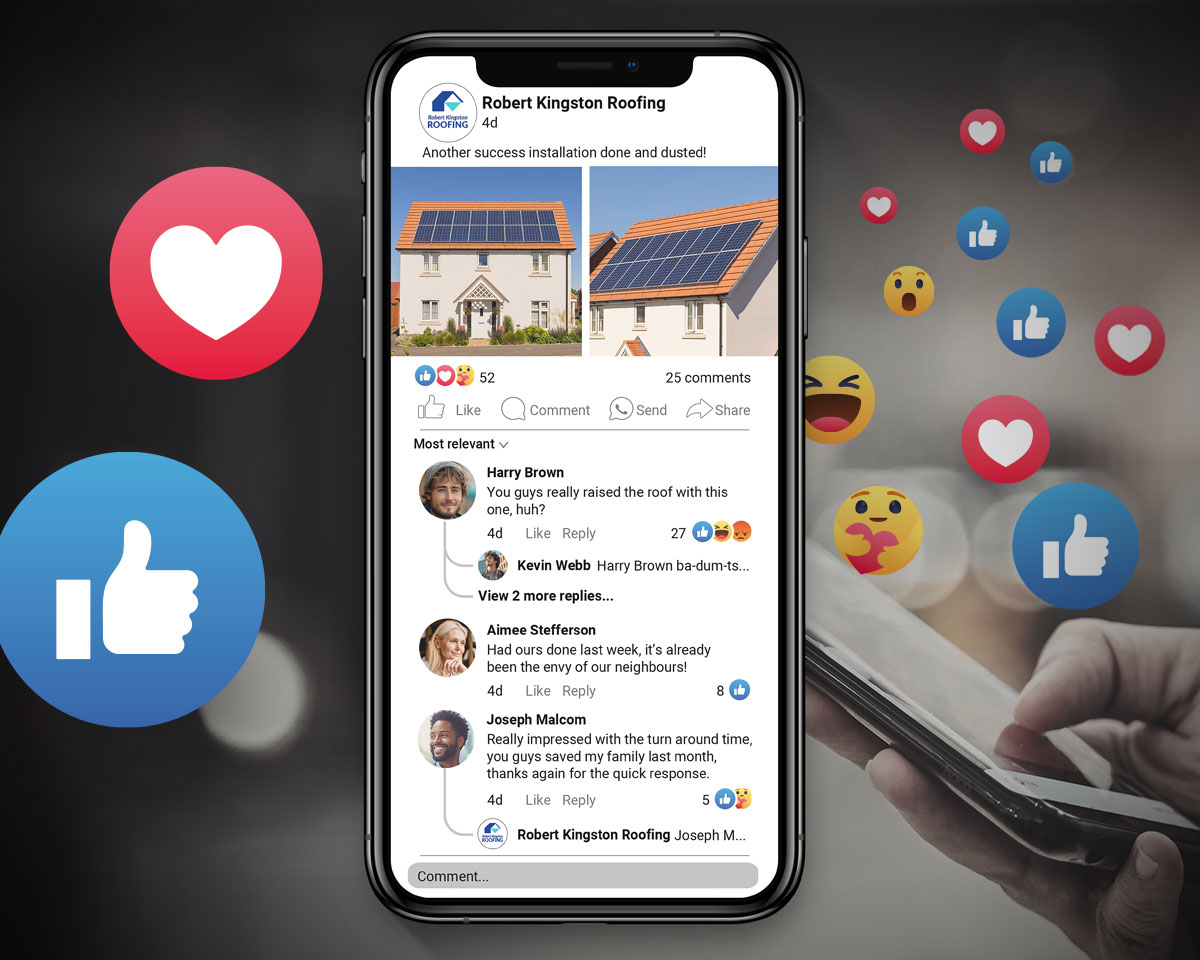The Real Cost of Doing Your Own Marketing

- 04 June 2025
- News
The Real Cost of Doing Your Own Marketing isn’t just about money, it’s about time lost, missed opportunities, and work that doesn’t bring results. If you’re a tradesperson trying to juggle tools and timelines while also running adverts or managing social media, this content is for you. Marketing your business yourself might seem like a cost-saving solution at first, but for most small business owners, the numbers quickly tell a different story. DIY marketing often creates inefficiencies, inconsistent branding, and long-term expense. Here’s what it’s really costing you and how to fix it.
What’s the actual price of going it alone?
Managing your own marketing can feel empowering, especially for new business owners trying to stay lean. But it comes at a cost, hidden time drains, lower returns, and misused resources. This section breaks down the real financial and operational consequences of doing your own marketing without expert support.
- Time loss: 10–20 hours/week on average
- Learning curve delays: 3–6 months before basic proficiency
- Lower ROI: Up to 45% lower on Pay Per Click (PPC) campaigns run without experience
- Burnout risk: High for sole traders handling marketing and operations

Why freelancers aren’t always a fix
Hiring freelancers might seem like a middle-ground option, but patchwork support often leads to inconsistent branding and duplicated effort.
Freelancer Limitations:
- Varying quality and reliability
- Lack of a unified strategy
- Additional time managing tasks/project briefs
SEO: A skill, not a side task
Search Engine Optimisation (SEO) isn’t just keyword research and backlinks. A proper SEO strategy includes technical, on-page, and off-page optimisation, all of which require ongoing refinement.
Common SEO DIY issues:
- Ignoring schema markup
- Poor keyword targeting
- Duplicate or thin content
PPC: High risk, low return for novices
Paid advertising platforms like Google Ads and Facebook demand precise targeting and bidding. DIY PPC campaigns often lead to wasted spend.
| Error Type | Impact |
|---|---|
| Broad match targeting | Low-quality clicks |
| No negative keywords | Poor budget control |
| Poor landing pages | High bounce rates, low return on investment (ROI) |
| Inadequate tracking | No campaign performance insight |
Content marketing is more than posting blogs
Creating content consistently requires planning, keyword alignment, SEO knowledge, and a content calendar. It’s a full-time role in most digital marketing agencies.
Effective content marketing requires:
- Research-driven keyword selection
- Alignment with your marketing strategy
- Regular output on a consistent basis

Social media isn’t free when your time is valuable
Managing social media platforms eats time. From post creation to engagement, you’ll need hours each week across multiple platforms.
Estimated time cost/week:
- Content creation: 5–7 hours
- Engagement & replies: 3–4 hours
- Scheduling: 1–2 hours
What do digital marketing agencies really offer?
Agencies provide a consolidated team of strategists, content creators, PPC specialists, and analysts who work together under one clear marketing strategy.
Typical services include:
- SEO
- Social media marketing
- PPC campaign management
- Web development
- Content creation
- Project management
The role of a digital marketing strategist
Strategists oversee the entire digital marketing strategy. They evaluate data, set Key Performance Indicators (KPIs), and optimise campaigns to meet business goals.
Skills include:
- Data interpretation
- Cross-channel planning
- ROI tracking
Digital marketing is not one skill—it’s many
You’ll need expertise across different skills to make marketing effective:
- SEO and keyword research
- Graphic design
- Copywriting
- Digital advertising
- Analytics and reporting
- Email automation

Content creation bottlenecks slow your growth
If you’re handling all content yourself, production slows. Without a pipeline, your audience sees inconsistent messaging.
Common bottlenecks:
- Over-reliance on one person
- Lack of a repurposing strategy
- No editorial calendar
Can referrals and recommendations alone drive growth?
Referral marketing works best when layered into broader digital efforts. Relying on it alone limits your reach.
Limitations of referral-only growth:
- Slower acquisition
- No control over lead volume
- Limited data on customer origin
Email marketing without structure leads to poor results
Sending out occasional email blasts isn’t a strategy. Email needs structure, personalisation, segmentation, and CTAs to convert.
Key email features for effectiveness:
- Segmented lists
- Subject line testing
- Clear Call To Action (CTA) placement
- A/B testing
DIY approach = no time for customer work
Every hour spent doing marketing is time taken from fee-paying customer work. This hurts profitability.
| Task | Time Spent/Week |
|---|---|
| Content writing | 4–6 hours |
| Social media updates | 3–5 hours |
| Campaign reporting | 2–3 hours |
| Email marketing | 2–4 hours |
Why consistency is key on social platforms
Your audience expects regular engagement. Inconsistent posting results in drops in reach and engagement.
Best practice tips:
- Use a scheduling tool
- Pre-plan monthly themes
- Maintain a consistent tone of voice
- Use consistent branding

Google, Facebook and LinkedIn need unique approaches
You can’t post the same content across all platforms and expect results. Each demands tailored content.
| Platform | Recommended Format |
|---|---|
| Community-focused posts | |
| Professional insights | |
| Visual stories + reels | |
| Google Ads | Paid, keyword-targeted |
The ongoing expenses you’re not tracking
DIY marketing involves hidden costs: tools, subscriptions, photography, and more.
Commonly overlooked expenses:
- Paid tools (Canva Pro, Ahrefs, Grammarly)
- Image licenses
- Stock videos
- Email platform fees
Should a new business outsource marketing?
Yes, if your revenue supports it and you’re aiming for scale. A marketing team or agency removes bottlenecks and improves ROI.
Outsourcing makes sense when:
- Your enquiries have slowed down or are inconsistent
- Marketing takes more than 10 hours/week
- Your website traffic has plateaued
- You can’t scale campaigns
Your inbox can’t replace a CRM
Tracking leads and referrals via email creates chaos. Proper tools streamline project management and lead tracking.
The value of a marketing team vs. DIY
Hiring a full team in-house is expensive. Agencies offer cost-effective access to specialists.
| Role | In-House Salary | Outsourced Value/month |
|---|---|---|
| SEO Specialist | £35k+ | £1,000–£2,000 |
| Content Manager | £45k+ | Included in the agency fee |
| PPC Manager | £40k+ | £800–£1,500 |
Marketing strategy needs a structure
You can’t “wing it”. Strategy involves research, planning, targeting, execution and analysis.
A good strategy includes:
- SMART goals
- Target market profiling
- Budget allocation
- Platform selection
Digital advertising mistakes cost you real money
Click fraud, misaligned campaigns, and poor landing pages waste budget.
Top digital advertising errors:
- No geo-targeting
- Bidding on the wrong keywords
- No follow-up campaigns
Why do you need keyword research at the start
Keyword research isn’t optional. It informs everything from content topics to PPC.
Benefits of keyword research:
- Better SEO targeting
- Lower Cost Per Click (CPC) in paid ads
- Improved content relevance
Web development shouldn’t be an afterthought
Your website is the base of your marketing. Poor User Experience (UX) or slow speeds kill the potential of someone getting in touch (conversions).
Fixes to prioritise:
- Mobile responsiveness
- Fast load times
- Clear Calls To Action
The impact of poor project management
Without tracking systems, marketing work becomes chaotic.
Fix this with:
- Weekly sprints
- Task management tools
- Clear deadlines
What does the average digital marketing agency cost?
Agencies vary, but most SMEs spend between £2,000 and £5,000/month.
Breakdown includes:
- Strategy
- Content
- SEO
- PPC
- Reporting
Office space vs outsourced service providers
Why pay for square feet when you can get better outcomes remotely?
Agency vs in-house costs:
- No desk/equipment costs
- Flexible contract terms
- Easy to scale
Doing it yourself costs more than you think
Marketing is a full-time job. The DIY approach may seem economical, but the lost time, lower ROI, and missed opportunities are more expensive long term.
At TradePal, we specialise in supporting all trades businesses including plumbers, electricians, heating engineers, landscapers, builders, carpenters, and more. Our tailored marketing packages are built for your trade, your budget, and your business goals.
Save your hours for customer work, not social media or Google Ads. View our marketing packages now at tradepal.co.uk/packages, or explore the trades we support. Want to speak to someone? Request a callback or get in touch today.
The real cost of doing your own marketing isn’t just money, it’s time, growth, and missed opportunity. Let TradePal handle it for you.